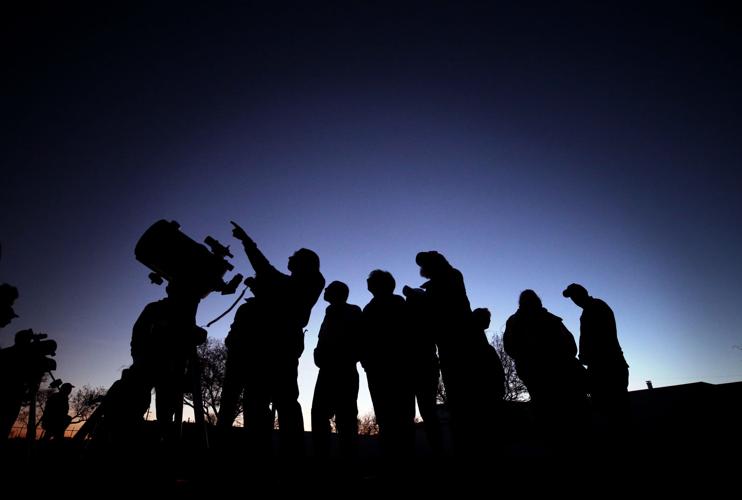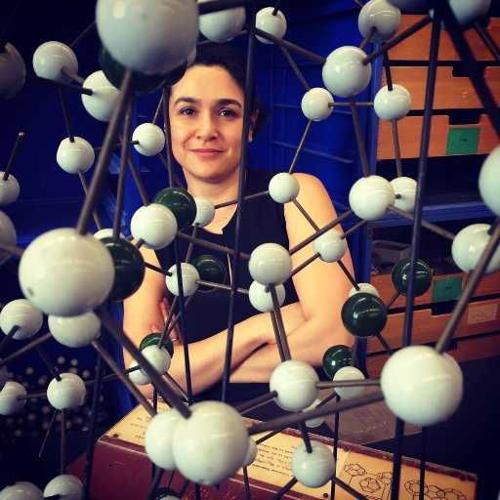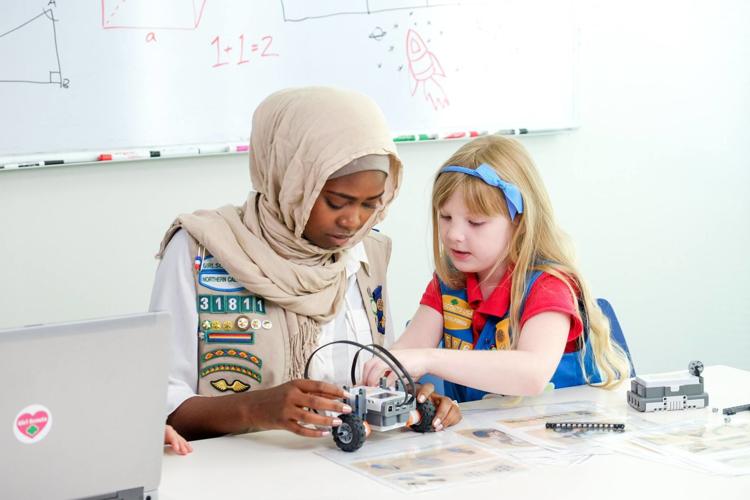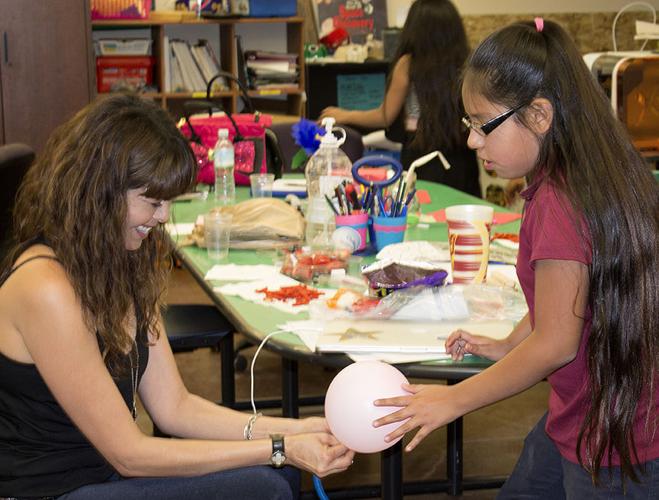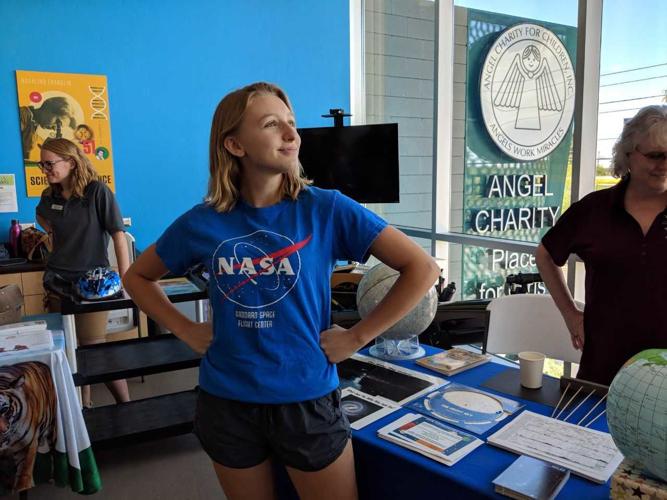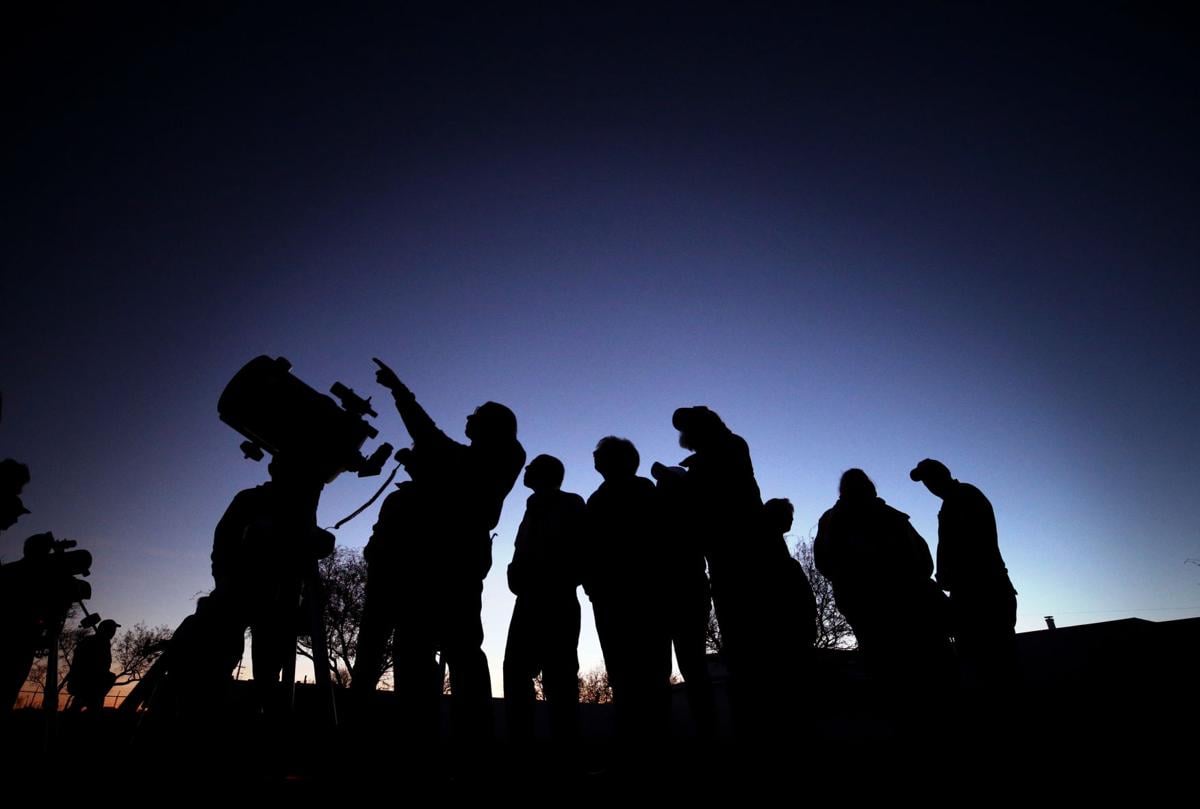This story was created by #ThisIsTucson and underwritten by Girl Scouts of Southern Arizona, supporting girls in STEM. Thank you for supporting the local organizations that support us!
If you love astronomy, count your lucky stars that you live in Tucson.
Dark sky ordinances make stargazing particularly good here, attracting both amateur and professional astronomers from around the world. Not to mention the presence of a university that, you know, takes pictures of MARS.
Among those astronomers are some women who want to encourage future generations to aim for the stars.
Like Betul Kacar, a 35-year-old professor of astrobiology at the University of Arizona who co-founded SAGANet: The Online STEM Mentorship and Education Network. Check out her impressive bio here.
Or Sophie Kent, a 17-year-old who attended a NASA training and returned to start an astronomy club for the Girl Scouts of Southern Arizona.
Or Czarina Salido, a 44-year-old who started a local nonprofit that sends Native American kids to space camp.
Meet these astronomy superstars.
Meet Betul.

Betul Kacar is a professor of astrobiology at the University of Arizona.
Where did your interest in space and astronomy begin?
After watching the movie "Contact" in high school.
Why do you love it?
Big question, taught me a sense of my place in the universe.
How did you pursue it?
I became a professor of astrobiology!
What challenges did you encounter along the way?
Learning how to be true to myself, trusting my own ideas and being confident — it takes time, but you get there — with persistence! ;)
Tell us about the work you do today that's related to space and astronomy?
I am an astrobiologist. I work between biology and astronomy. My team resurrects ancient biology in the laboratory to access past biosignatures. These biosignatures help us guide finding life elsewhere in the universe.
What would you say to encourage girls interested in pursuing a space-related career?
Be bold. Be courageous. Be yourself.
Meet Sophie.

Sophie Kent started an astronomy club for the Girl Scouts of Southern Arizona.
Where did your interest in space and astronomy begin?
Watching Wallace and Gromit go to space or have a picnic on the moon.
Why do you love it?
It is endless. There is infinite discovery and adventure.
How did you pursue it?
I took physics in school to learn more about it; I asked for a tabletop telescope; I applied for every space-related Girl Scout program, and then I started the club.
What challenges did you encounter along the way?
Teachers telling me science just "wasn't my thing," having to balance a hard school with my personal interests and of course maintaining and running a club while working and graduating high school is always a challenge.
Tell us about the work you do today that's related to space and astronomy?
I am pursuing STEM in college, and working on my Gold Award that is centered around women in space sciences.
What would you say to encourage girls interested in pursuing a space-related career?
Reach for the stars. Literally. Work hard and be passionate and determined and nothing can stand in your way.
Meet Czarina.

Director of Taking Up Space, Czarina Salido and Soledad Ramirez, 9, work on inflating a balloon for a science project in May 2017.
Where did your interest in space and astronomy begin?
My interest in space and astronomy began in my front yard in Tucson. Grandpa and I would stargaze, and he would point out different constellations. At first I found them confusing, but even today I still remember what he taught me.
Why do you love it?
Growing up in Tucson with the dark skies, internationally-known space-themed university courses and world-class observatories on top of many of the local mountains instilled in me a lifelong sense of wonder and curiosity. It's one of the best places in the world to grow up in to appreciate the wonders of the universe and then have the chance to learn about it from experts.
How did you pursue it?
I pursued it by starting a nonprofit named Time in Cosmology that sends Native American kids to space camp.
What challenges did you encounter along the way?
My biggest challenge in school was having the courage to speak up and answer a question. Today I have to find the courage to ask for support when fundraising.
Tell us about the work you do today that's related to space and astronomy?
My nonprofit organization allows kids to learn about space and astronomy at one of the best space education facilities in the world — Space Camp. By flying space simulators, launching rockets and working as teams, they not only learn science and engineering, but they also learn confidence and collaboration skills that will help them in any career they choose to pursue.
What would you say to encourage girls interested in pursuing a space-related career?
I would encourage girls interested in pursuing a space-related career by saying that they are amazing in even thinking about a career in space. It's such a smart path because STEM workers earn higher salaries, and it's one of the fastest growing fields. If they ever fall behind in their studies, they should not be discouraged. They should seek help by finding a mentor, tutor or teacher who can guide them. Never be afraid to ask!
Got a future astronomer or astronaut? Here's how your girl can get started...
Check out a telescope
You can check out a telescope from the Joel D. Valdez Main Library, 101 N. Stone Ave., or the Oro Valley Public Library, 1305 W. Naranja Drive, with your Pima County Public Library card. You can check one out for three weeks. Go here for more information.
Take her to Spacefest
Ever year, astronauts, artists, space historians, astronomers and other space lovers descend on Tucson for an out-of-this-world experience. There are astronaut talks, space movies and STEAM activities. This year's Spacefest is at the JW Marriott Tucson Starr Pass Resort and Spa, 3800 W. Starr Pass Blvd., Thursday, Aug. 8 - Sunday, Aug. 11. Tickets for a day range between $10 and $30 for adults, but kids 12 and younger are free. Go here for more information.
Celebrate the 50th anniversary of the moon landing
That's this year on July 20, believe it or not. To celebrate, the University of Arizona's Flandrau Science Center and Planetarium, 1601 E. University Blvd., is inviting the public to Moonfest, several months of moon-related festivities. There's the full-dome planetarium show about the Apollo missions running the month of July, telescopes on the UA Mall on July 13, and family events on July 20, among others. Events vary in cost. Go here for more information.
Learn more about how to send a Native American girl to camp
Visit girlstakingupspace.com to learn more about Czarina Salido's nonprofit.

Is your girl a budding scientist, astronomer, coder or conservationist?
Girl Scouts knows girls are natural-born scientists! They look at the world around them with inquisitive eyes, experiment and push boundaries, and learn as they go. Is your girl a budding scientist, astronomer, coder, or conservationist? Sign her up for Girl Scouting’s fun-with-purpose all-girl STEM programming, which is proven to help girls become better problem-solvers, critical thinkers, successful students, and inspirational leaders.


